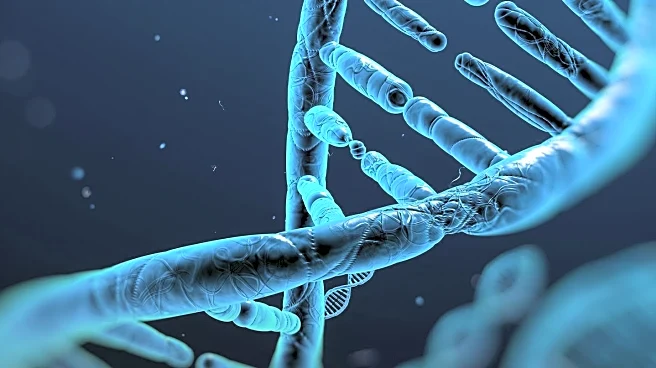What's Happening?
A study published in Cell Metabolism suggests that a genetic test could help determine the most effective weight loss drugs for individuals based on their biological traits. Researchers at the Mayo Clinic developed the CTS-GRS (Calories to Satiation Genetic Risk Score) to predict how people respond to weight loss medications. The study involved nearly 800 adults with obesity, examining their eating patterns and genetic markers. The test calculates a person's satiation threshold, which can guide the choice of weight loss drugs, such as phentermine-topiramate and liraglutide, based on individual needs.
Why It's Important?
This research represents a significant advancement in personalized medicine, particularly in the field of weight management. By tailoring weight loss treatments to an individual's genetic makeup, healthcare providers can potentially improve outcomes and reduce the trial-and-error approach often associated with weight loss drugs. This personalized approach could lead to more effective weight management strategies, addressing the obesity epidemic more efficiently and reducing related health issues such as diabetes and heart disease.
What's Next?
Further studies are underway to expand the genetic test's capabilities, including predicting responses to other weight loss drugs and incorporating microbiome and metabolome data. Researchers aim to refine the test to anticipate common side effects, enhancing its utility in clinical settings. As the technology advances, it may become a standard tool in obesity treatment, prompting healthcare providers to adopt more personalized approaches in prescribing weight loss medications.










